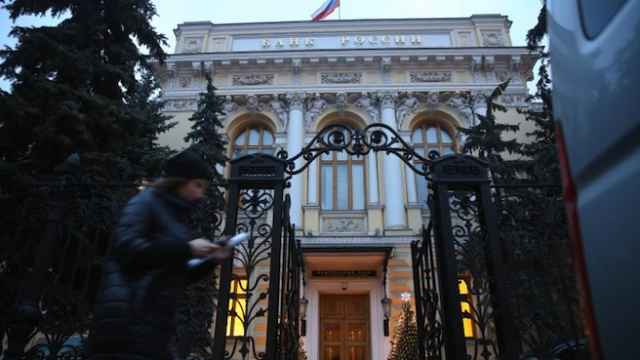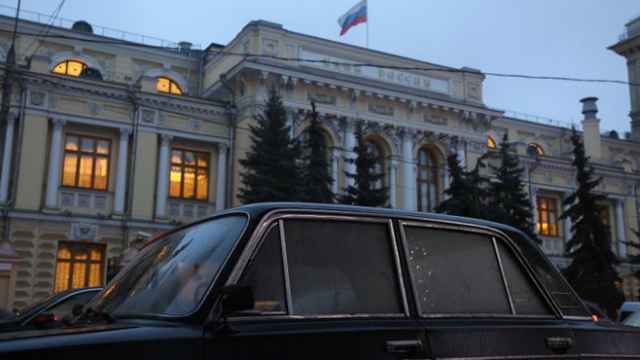The Russian ruble weakened on Monday, with market players still reacting negatively to the Central Bank's unexpected decision on Friday to cut rates, and a decline in oil prices weighing on the currency.
At 07:35 GMT, the ruble was about 0.7 percent weaker at 69.42 against the dollar and about 0.6 percent lower on the day at 78.45 versus the euro.
On Friday, the Central Bank surprised the markets by saying it was cutting it key interest rate by 2 percentage points to 15 percent, with analysts saying the move might have come too early.
"Although a dovish [Central Bank] bias is now more apparent, the timing of further easing depends on how the markets react to Friday's decision and the Central Bank's readiness to stabilize expectations via non-interest-rate policy tools in case of renewed pressure on the currency," Vladimir Kolychev, an analyst at VTB Capital, wrote in a note.
Oil, Russia's main export, saw its prices falling on Monday after a surge above $50 per barrel on Friday. Brent futures traded more than $1 down on the day at about $51.70
"If the enthusiasm of buyers in the oil market dries up and the price of Brent returns to the level of around $48 [per barrel], the ruble is doomed to fall further," said in a note Gleb Zadoya, head analyst at Profit Group in Moscow.
"In this case, the ruble can test the levels of 85 per dollar and 95 per euro."
Investors were also concerned about new wave of fighting in eastern Ukraine over the weekend after peace talks collapsed.
"News that Ukrainian peace talks again broke down will do nothing to support sentiment," analysts at Sberbank Investment Research wrote in a note.
In contrast to the ruble, Russian stocks were stronger on Monday. They were pricing in the rebound in the price of oil on Friday evening, which occurred after the Moscow stock exchange had closed.
On Monday, the dollar-based RTS index was up 1.7 percent to 749 points and the ruble-based MICEX was 0.2 percent higher at 1,650 points.
A Message from The Moscow Times:
Dear readers,
We are facing unprecedented challenges. Russia's Prosecutor General's Office has designated The Moscow Times as an "undesirable" organization, criminalizing our work and putting our staff at risk of prosecution. This follows our earlier unjust labeling as a "foreign agent."
These actions are direct attempts to silence independent journalism in Russia. The authorities claim our work "discredits the decisions of the Russian leadership." We see things differently: we strive to provide accurate, unbiased reporting on Russia.
We, the journalists of The Moscow Times, refuse to be silenced. But to continue our work, we need your help.
Your support, no matter how small, makes a world of difference. If you can, please support us monthly starting from just $2. It's quick to set up, and every contribution makes a significant impact.
By supporting The Moscow Times, you're defending open, independent journalism in the face of repression. Thank you for standing with us.
Remind me later.





